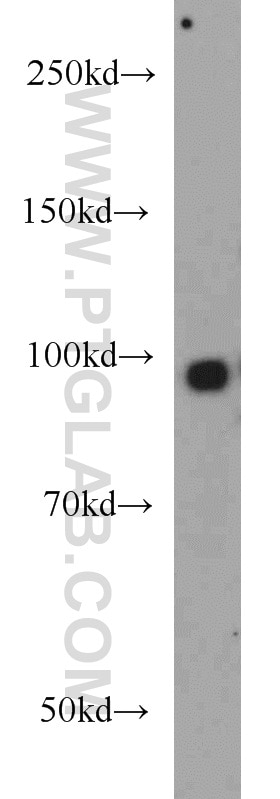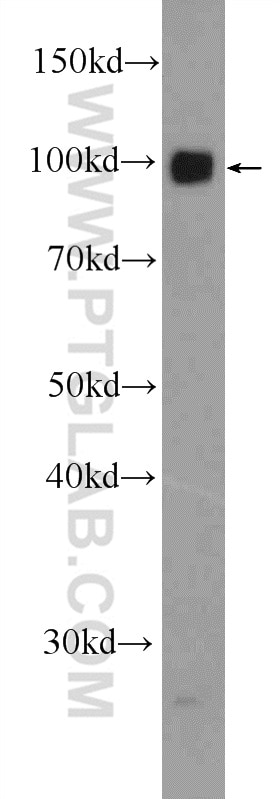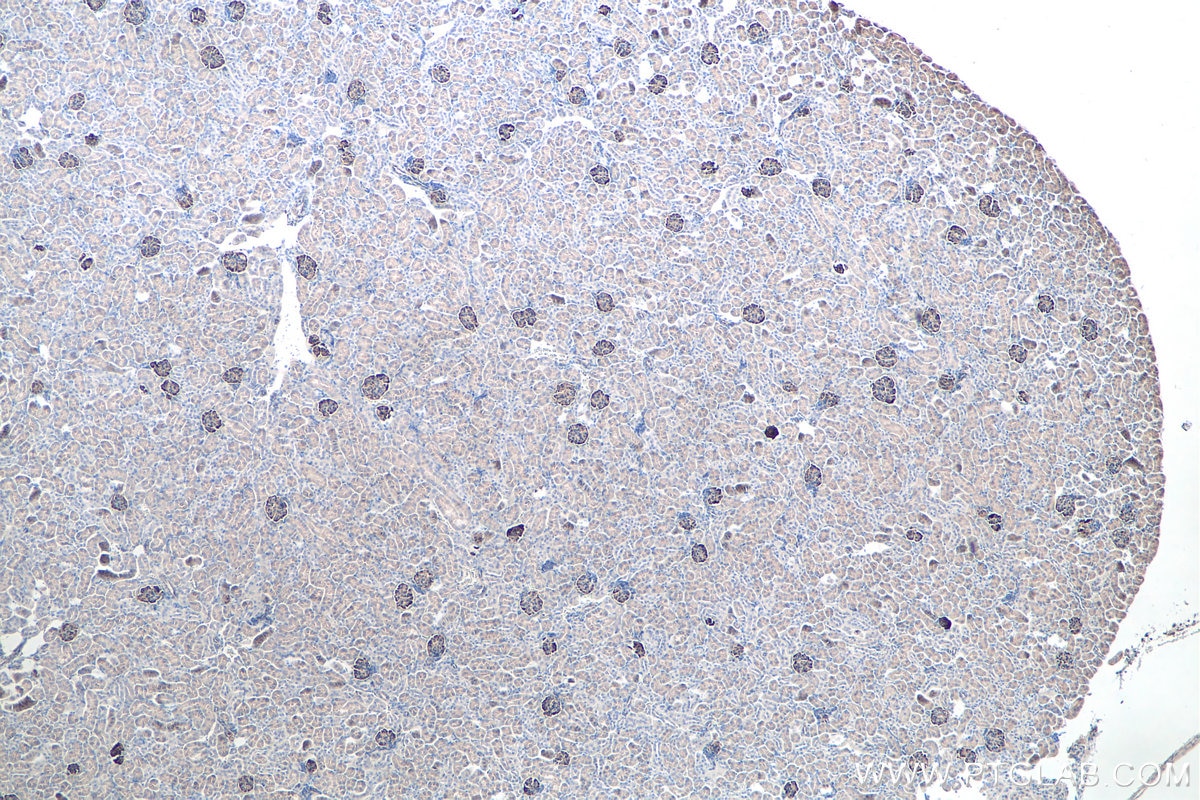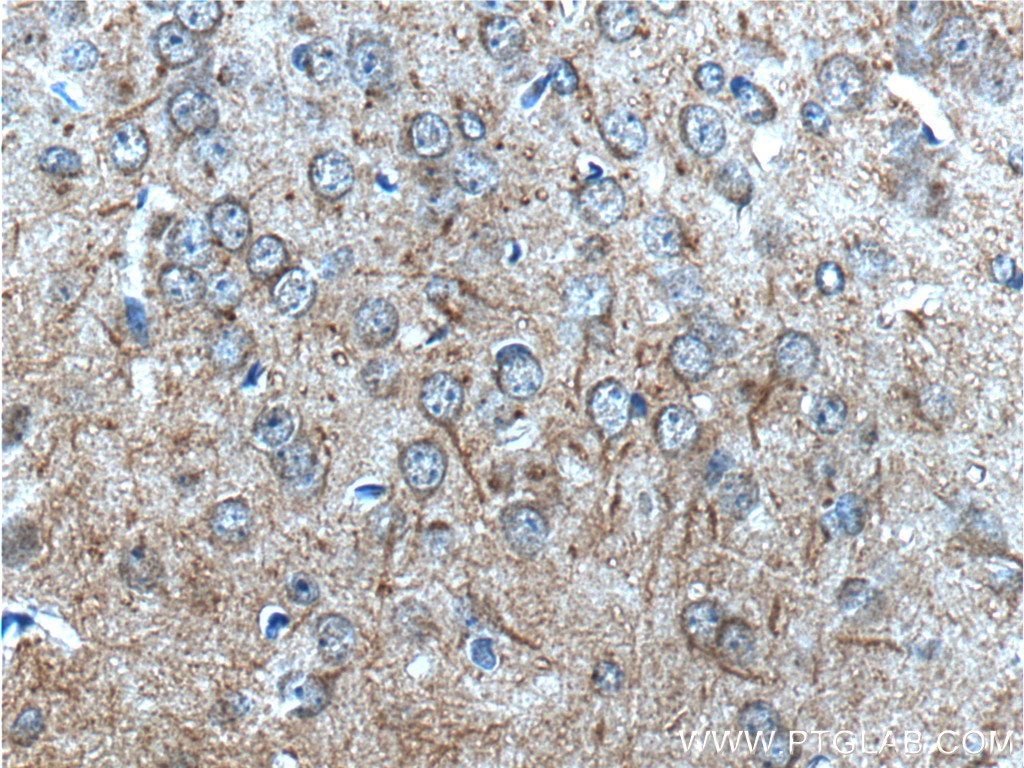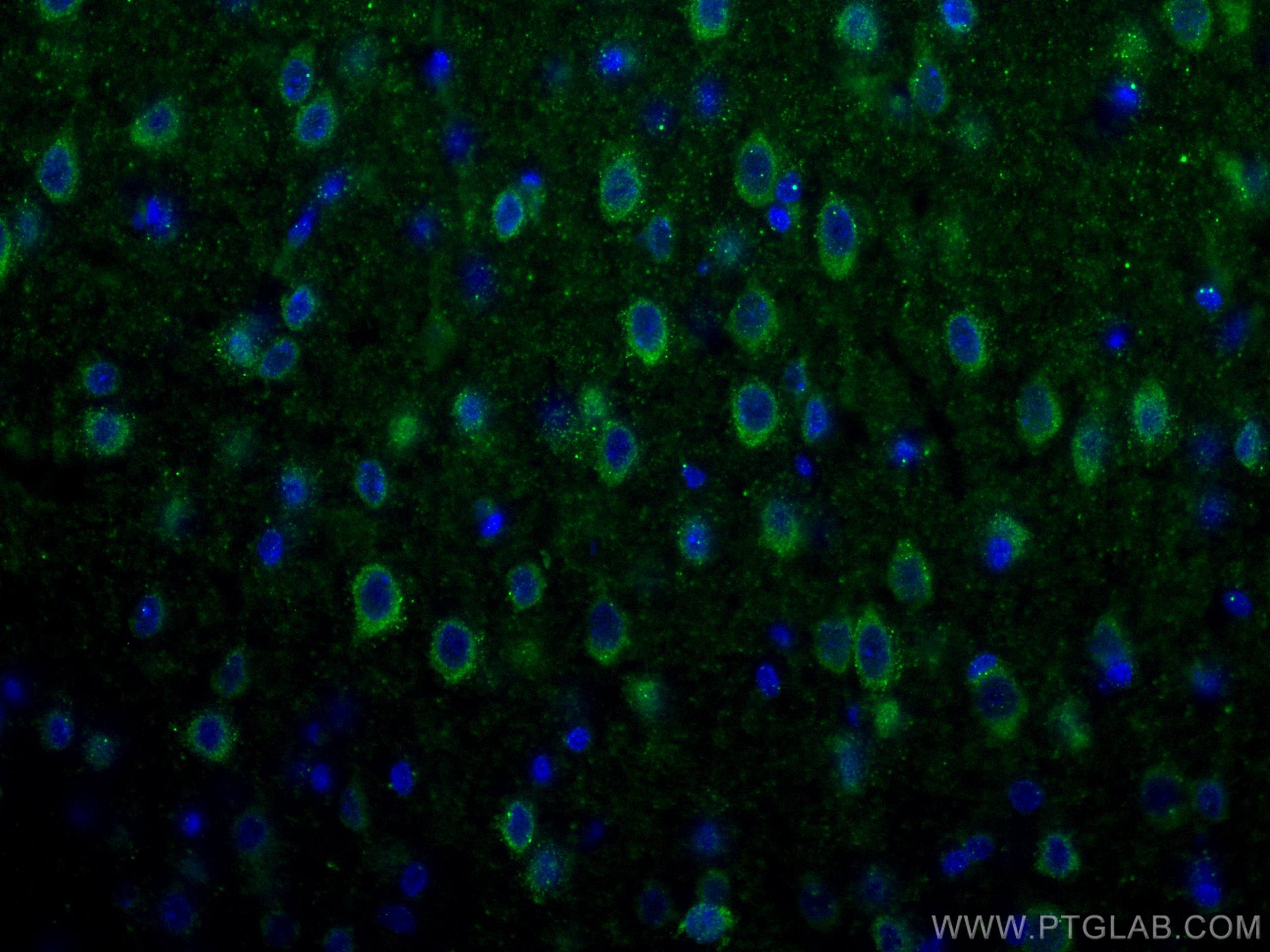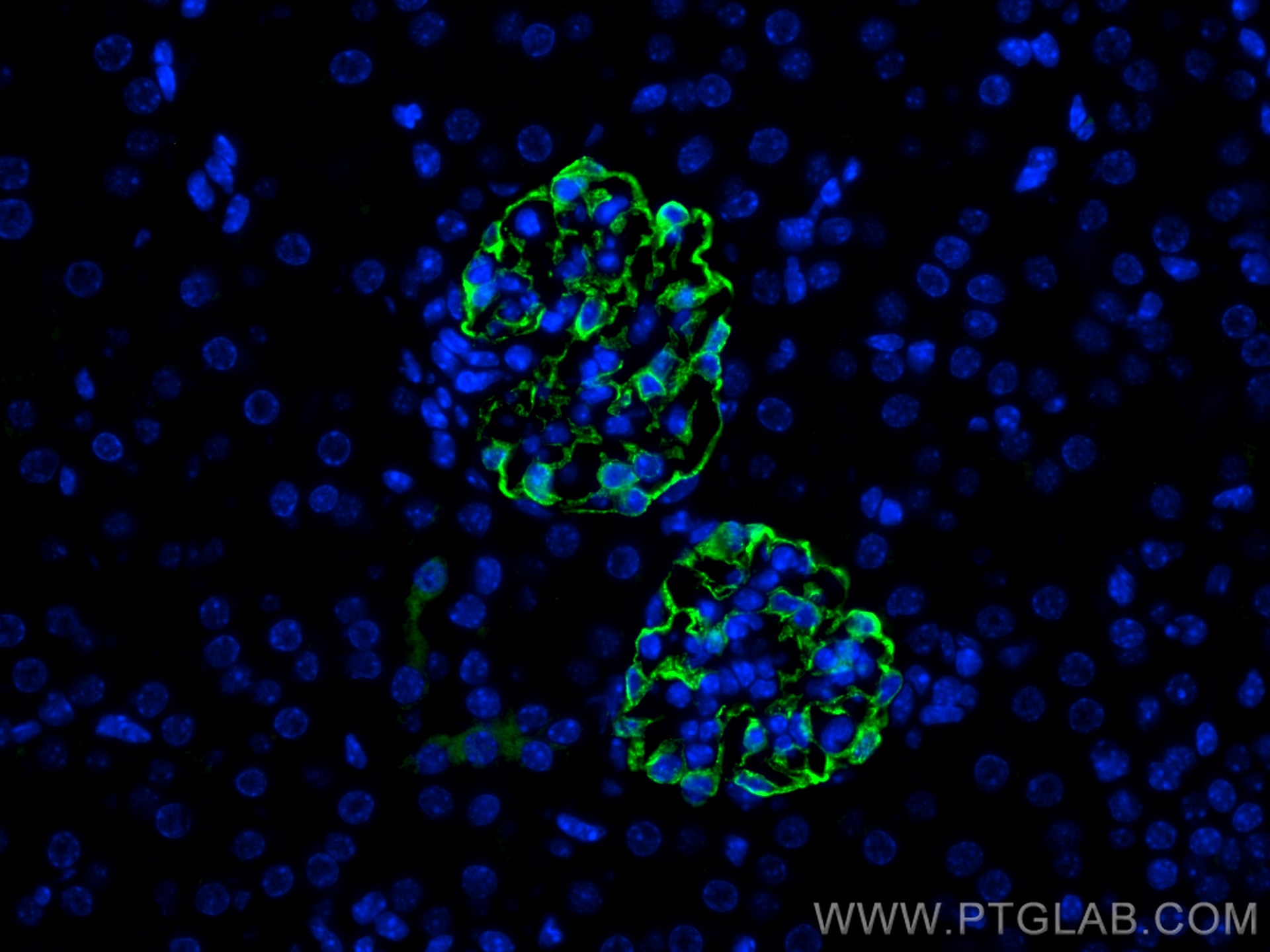Tested Applications
| Positive WB detected in | mouse brain tissue, rat brain tissue |
| Positive IHC detected in | mouse brain tissue, mouse kidney tissue Note: suggested antigen retrieval with TE buffer pH 9.0; (*) Alternatively, antigen retrieval may be performed with citrate buffer pH 6.0 |
| Positive IF-P detected in | rat brain tissue, mouse kidney tissue |
Recommended dilution
| Application | Dilution |
|---|---|
| Western Blot (WB) | WB : 1:500-1:2000 |
| Immunohistochemistry (IHC) | IHC : 1:20-1:200 |
| Immunofluorescence (IF)-P | IF-P : 1:200-1:800 |
| It is recommended that this reagent should be titrated in each testing system to obtain optimal results. | |
| Sample-dependent, Check data in validation data gallery. | |
Published Applications
| WB | See 29 publications below |
| IHC | See 7 publications below |
| IF | See 40 publications below |
Product Information
21064-1-AP targets SYNPO in WB, IHC, IF-P, ELISA applications and shows reactivity with human, mouse, rat samples.
| Tested Reactivity | human, mouse, rat |
| Cited Reactivity | human, mouse, rat |
| Host / Isotype | Rabbit / IgG |
| Class | Polyclonal |
| Type | Antibody |
| Immunogen | SYNPO fusion protein Ag15089 Predict reactive species |
| Full Name | synaptopodin |
| Calculated Molecular Weight | 929 aa, 99 kDa |
| Observed Molecular Weight | 99-115 kDa |
| GenBank Accession Number | BC146665 |
| Gene Symbol | SYNPO |
| Gene ID (NCBI) | 11346 |
| RRID | AB_10733120 |
| Conjugate | Unconjugated |
| Form | Liquid |
| Purification Method | Antigen affinity purification |
| UNIPROT ID | Q8N3V7 |
| Storage Buffer | PBS with 0.02% sodium azide and 50% glycerol , pH 7.3 |
| Storage Conditions | Store at -20°C. Stable for one year after shipment. Aliquoting is unnecessary for -20oC storage. 20ul sizes contain 0.1% BSA. |
Background Information
Synaptopodin is a actin-associated protein expressed in mature dendritic spines and renal podocytes. Several isoforms of synaptopodin have been reported: the 100 kDa neural form and 110 kDa renal form. 44-45 kDa may represent the degradation product of synaptopodin. As a podocyte specific protein, synaptopodin expression level was decreased in kidney but increased in the urinary podocytes from patients with preeclampsia, indicating that synaptopodin is a useful marker for preeclampsia. (15841212, 10555072)
Protocols
| Product Specific Protocols | |
|---|---|
| WB protocol for SYNPO antibody 21064-1-AP | Download protocol |
| IHC protocol for SYNPO antibody 21064-1-AP | Download protocol |
| IF protocol for SYNPO antibody 21064-1-AP | Download protocol |
| Standard Protocols | |
|---|---|
| Click here to view our Standard Protocols |
Publications
| Species | Application | Title |
|---|---|---|
J Extracell Vesicles Quantification of urinary podocyte-derived migrasomes for the diagnosis of kidney disease | ||
Biofabrication A glomerulus chip with spherically twisted cell-laden hollow fibers as glomerular capillary tufts | ||
Theranostics Renal tubular Bim mediates the tubule-podocyte crosstalk via NFAT2 to induce podocyte cytoskeletal dysfunction. | ||
Diabetes Deficiency of Mitochondrial Glycerol 3-Phosphate Dehydrogenase Exacerbates Podocyte Injury and the Progression of Diabetic Kidney Disease. | ||
Free Radic Biol Med P2X7R/AKT/mTOR signaling mediates high glucose-induced decrease in podocyte autophagy | ||
Mol Ther Nucleic Acids Inhibition of the lncRNA MIAT prevents podocyte injury and mitotic catastrophe in diabetic nephropathy. |
